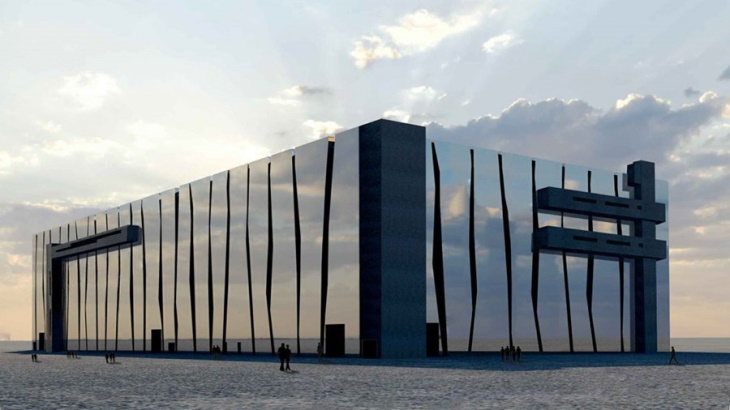The ITER Organisation noted the high kinetic energy of fast neutrons produced in a deuterium-tritium fusion reaction is converted into heat as they pass through the walls of the tokamak, allowing for significant power generation. However, those same high-energy neutrons, over a period of sustained bombardment, cause material degradation through the process of transmutation.
The level of neutron irradiation planned for demonstration fusion power plants (DEMOs) has never been tested. In order to build DEMOs out of materials that can withstand such harsh bombardment, developers are looking to neutron sources as a way to mimic fusion conditions for materials testing.
The IFMIF-DONES materials testing facility will simulate DEMO-like conditions for potential structural materials. It will use a particle accelerator to produce a continuous-wave deuteron (D+) beam aimed at a target made of a liquid lithium curtain. The interaction between deuterium and lithium will generate enough free neutrons to simulate the planned neutron flux over time of Europe's DEMO, which is being designed by the DEMO Central Team at EUROfusion. Directly behind the lithium target will be the high-flux test module, which will house capsules of material samples for neutron irradiance testing.
The facility will produce a 125 mA deuteron beam, accelerated up to 40 MeV and shaped to have a nominal cross section in the range from 100 mm x 50 mm to 200 mm x 50 mm, impinging on a liquid lithium target 25 mm thick cross‐flowing at about 15 m/s in front of it.
Construction of the IFMIF-DONES facility is expected to take about 10 years to complete. Subsequently, the scientific and technological exploitation will last at least 30 years.
"A key use of the IFMIF-DONES facility will be the testing of EUROFER, the reduced activation steel alloy currently intended to serve as DEMO's first wall structural material," said IFMIF-DONES Director Angel Ibarra. "It is important to do these experiments in a fusion-like environment as soon as possible to validate this material for Europe's DEMO. We'll be testing hundreds of samples of EUROFER and EUROFER-like alloys under varying conditions of neutron and heat flux to gain a fuller understanding of its mechanical properties.
"Both success stories and lessons learned from the ITER Project's last 15 years can help optimise IFMIF-DONES operations as the facility enters its construction phase," Ibarra added. "Also, some technologies already developed for ITER will also be needed in our project, and perhaps the development process can be streamlined."
The mission of the DONES programme is to develop a database of fusion‐like neutron irradiation effects in the materials required for the construction of DEMOs for benchmarking of radiation response of materials.





_18570.jpg)
_16159.jpg)
_49205.jpg)
_18938.jpg)





